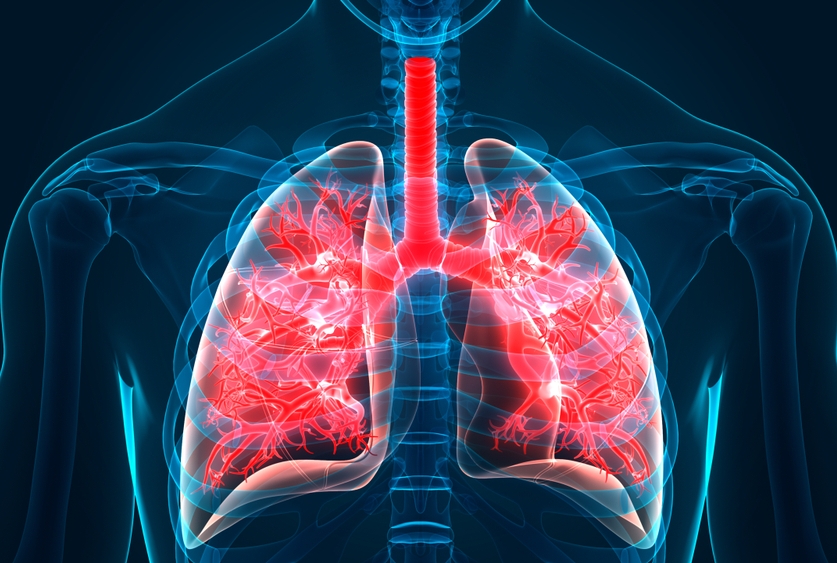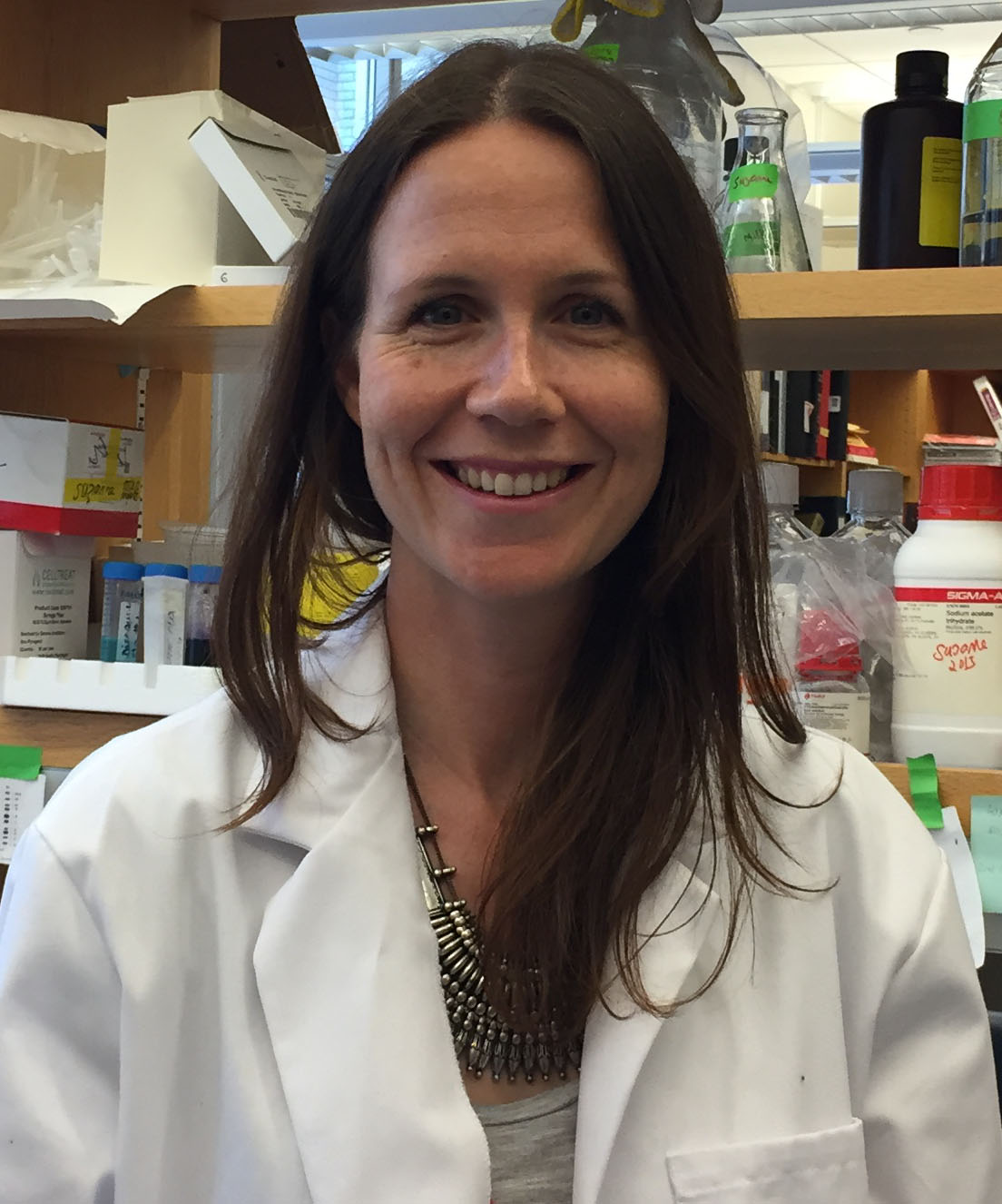Chronic Obstructive Pulmonary Disease: The Cloonan lab leads research into the fourth leading cause of death in Ireland
According to the European Respiratory Journal, “Chronic Obstructive Pulmonary Disease (COPD) is the third leading cause of mortality worldwide, but 50–90% of the disease burden remains undiagnosed.” An article from the Medical Independent states that “respiratory diseases cause almost one in five deaths in Ireland (18.8%)” and that “Ireland’s death rate from respiratory diseases is 38.2% higher than the EU-28 average.” Yet there is little awareness among the public about the development of COPD, and not enough scientific and academic research being conducted in the area.
According to Dr Suzanne Cloonan, Associate Professor in Respiratory Biochemistry in the School of Medicine and Tallaght University Hospital, COPD is largely undiagnosed in Ireland and, because cigarette smoking is the biggest risk factor for COPD, people often do not seek help for their disease and may attribute it to just a “smoker’s cough”. Dr Cloonan points out that this is an oversimplification, and that the disease can also affect people who have been exposed to air pollution or whose job entails working with fumes. Given the fact that 25-40% of COPD patients have never smoked, there is a strong genetic component to this disease. COPD is the most prevalent respiratory disease in adults affecting over 170 million people globally and tops all non-communicable respiratory diseases combined in mortality. COPD is the fourth leading cause of death in Ireland, after heart disease, stroke, and lung cancer, so further research and public awareness on it is urgently required.
What is COPD?

COPD can manifest as frequent coughing or breathlessness which, if severe enough, can impact on the person’s ability to carry out their daily activities, walk, or climb stairs. If they develop a bacterial infection, they often have to go to hospital and receive treatment with antibiotics and steroids. There is no cure, and while patients are often prescribed with inhalers, the disease grows worse with age and can lead to emphysema. Emphysema is a type of COPD and is more well-known; it is commonly depicted in movies or TV shows in older people with a persistent, vigorous cough. However, there is comparatively little public knowledge of COPD. “With a lot of lung diseases,” Dr Cloonan notes, “we just don’t know how to stop them.”
Dr Cloonan completed her PhD at Trinity, then did a postdoc at Harvard, and an instructorship at Cornell. She recently returned from the U.S. to Dublin to take up a role at Trinity and has relocated the Cloonan Lab here. She was honoured by President Michael D. Higgins upon receiving an SFI President of Ireland Future Research Leader Award in early March 2020 (just before we all became considerably more concerned with respiratory diseases). The award of €1.5 million was for her work on how excess iron in the lungs may be a contributing factor in the development of lung diseases. She says that COVID-19 has helped raise awareness of the impact of lung diseases, and she has made some contributions to research into understanding COVID-induced critical illnesses.
Why this field?
 So, how did she get into this field, and get a foot in the door? During her postdoc at Weill Cornell Medicine, she worked with a world-renowned physician scientist Dr Augustine M.K. Choi, and realised that not many scientists were working on COPD. The National Institutes of Health in the U.S. were promoting work in the area and, with the help of mentorship and support from her university, she secured an NIH Pathway to Independence Award for five years of funding. This was, she says, great recognition of the work and her research, but also “a bit of luck.” Cornell was a supportive environment for career progression, and she says there was a sense of investment in her future as an academic and a scientist.
So, how did she get into this field, and get a foot in the door? During her postdoc at Weill Cornell Medicine, she worked with a world-renowned physician scientist Dr Augustine M.K. Choi, and realised that not many scientists were working on COPD. The National Institutes of Health in the U.S. were promoting work in the area and, with the help of mentorship and support from her university, she secured an NIH Pathway to Independence Award for five years of funding. This was, she says, great recognition of the work and her research, but also “a bit of luck.” Cornell was a supportive environment for career progression, and she says there was a sense of investment in her future as an academic and a scientist.
In contrast with the U.S., Dr Cloonan points out that Ireland allows for a greater work-life balance, however “running a lab is like owning a business.” It requires a lot of time and cultivation. “You’re not in it for the money,” she says, but between teaching, administrative duties, and other unpaid commitments (such as being an editor for two journals), gaining “protected time” for research can be difficult.
She also points out that being a woman in academia can be challenging, especially at the moment during COVID-19, and particularly with a young family at home. Even if childcare responsibilities are shared equally between parents, women in academia are not working within a level playing field. Women in academia, she suggests, do not want any special attention or accolades just because they are women, but instead want to be recognized for their work and expertise. However, to level this playing field there needs to be significant investment in support systems for women and other academics with caring responsibilities, such as onsite childcare services for academics, access to emergency subsidised childcare in the home, respite from teaching and administrative roles when returning from parental leave, and extended deadlines and extended eligibility for funding.
The Cloonan Lab
Having recently returned to Ireland and transferred the Cloonan Lab to Dublin, she aims to consolidate all her experience to date and focus on COPD research, with a long-term plan to expand and work on multiple lung diseases.
Her primary interest is in “iron biology,” and she previously worked with Dr Choi on how this relates to COPD. One of their findings was that among members of the same family who have COPD, some may have smoked and some may not, suggesting that genetics could be a factor. In the course of their research, they found that patients with severe COPD were often anaemic, but also “have a lot of iron in their lungs.” There was a previous assumption that this was due to cigarettes, but they do not actually contain much iron.
The Cloonan Lab seeks to conduct further research in this area. Working with Tallaght University Hospital, the team is collating a database or repository of COPD patients, seeking samples in order to run experiments. This is an area that Dr Cloonan wants to continue to develop. She is excited to continue her work in the new lab in Trinity College Dublin, and is looking forward to seeing what new discoveries they can bring to COPD and lung disease research, in Ireland and on an international scale.
Article by Dr Kate Smyth, Consultancy Development Officer, CONSULT Trinity, Trinity Research and Innovation.
For more information on academic consultancy visit CONSULT Trinity
Find out more about writing for researchMATTERS here.

